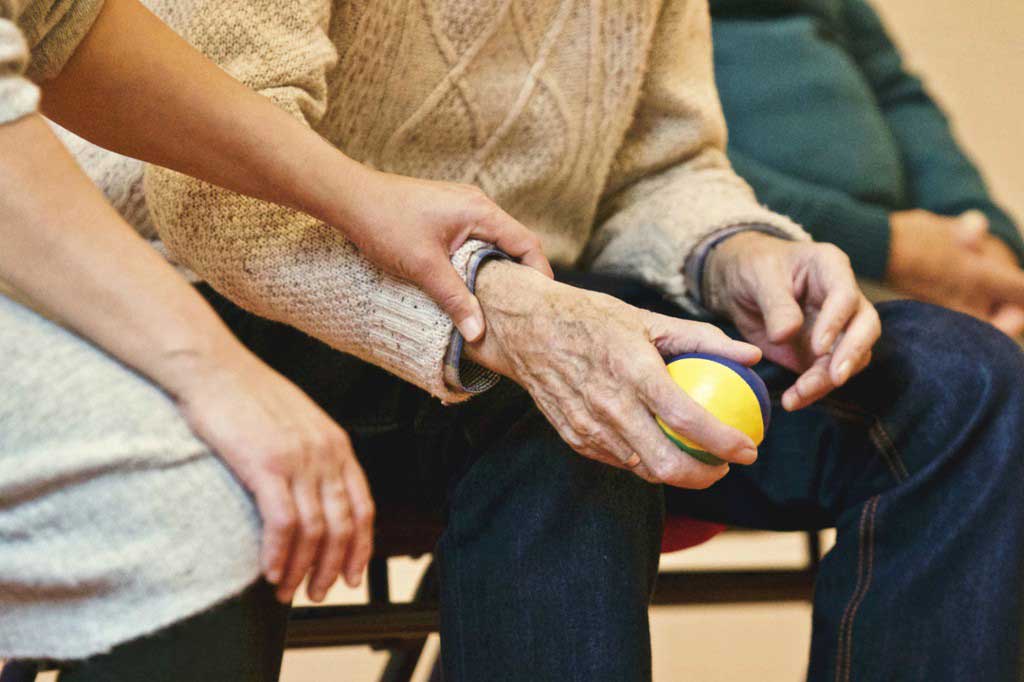Snoring when pregnant linked to low birth weight
Older people

“Snoring while pregnant is linked to smaller babies,” reports The Daily Telegraph. There is also evidence that snoring can lead to an increased risk of a baby having to be delivered by caesarean section…
“Snoring while pregnant is linked to smaller babies,” reports The Daily Telegraph. There is also evidence that snoring can lead to an increased risk of a baby having to be delivered by caesarean section.
This news is based on the results of a US cohort study that questioned a group of women during their last trimester of pregnancy (weeks 29 and over).
The researchers asked whether the women "habitually" snored (snoring three to four nights per week or nearly every night), and then followed up their birth outcomes. It found that self-reported "habitual" snoring, in particular snoring before and during pregnancy, was associated with increased likelihood of having a baby small for gestational age. There was also an increased likelihood of caesarean delivery.
The researchers adjusted for a number of factors that could be responsible for any association seen (confounders), such as mother’s age. However, this study cannot show that snoring directly caused the poorer delivery outcomes, as there could be other confounding health or lifestyle factors that were not adjusted for.
The researchers speculate that snoring leads to increased levels of inflammation which could affect the placenta leading to low birthweight. But this hypothesis needs further investigation.
Overall, pregnant women who snore should not be overly concerned by this research that snoring is going to have a harmful effect on their baby. What is important though, is for pregnant women to be able to get adequate rest.
Though, as the researchers suggest, it may be useful for health professionals to ask about snoring symptoms, and if appropriate, recommend treatments.
Where did the story come from?
The study was carried out by researchers from the University of Michigan, US. It was funded by the Gene and Tubie Gilmore Fund for Sleep Research, the University of Michigan Institute for Clinical and Health Research and the US National Heart, Lung and Blood Institute.
The study was published in the peer-reviewed journal Sleep.
The results of the study were accurately reported in the media.
What kind of research was this?
This was a cohort study. It aimed to examine the impact of maternal snoring during pregnancy on key delivery outcomes.
These outcomes included mode of delivery (vaginal or via caesarean section) and birth centile. Birth centiles are a method of comparing birthweight to the rest of the population. For example, if birth centile was below the 10th centile, this means that for every 100 infants less than 10 have lower birthweights. In this study, centiles were customised to take into account factors including maternal height, weight, and ethnicity and the infant’s gender and gestational age at birth.
A cohort study is the ideal study design to investigate this question. However, while the researchers adjusted for a number of factors that could be responsible for any association seen (confounders), this study cannot show that snoring caused poorer delivery outcomes. There could be other confounders that were not adjusted for.
What did the research involve?
The researchers recruited 1,673 pregnant women in their third trimester of pregnancy (this study included those of 28 weeks’ gestation or more) who attended antenatal clinics within the University of Michigan.
The women were asked whether they habitually snored or whether they had stopped breathing or gasped for air at night. Habitual snoring was defined as snoring either “three to four times per week” or “almost every day”. If women reported habitual snoring, they were asked when they started snoring. If women snored both before and during pregnancy, their snoring was classified as chronic. If snoring only started during pregnancy, the snoring was classified as pregnancy-onset snoring.
Delivery outcomes were obtained from medical records. The primary study outcomes were birth centile, mode of delivery (vaginal or caesarean section), cord blood gases (which helps determine whether the baby has been deprived of oxygen) and newborn transfer (whether the baby had to go into intensive care).
The researchers looked at whether snoring was associated with poorer delivery outcomes. The researchers tried to control their analyses for important potential confounders, such as mother’s age, body mass index (BMI), pre-eclampsia, number of previous pregnancies and maternal smoking.
What were the basic results?
Of the 1,673 women, 35% reported habitual snoring (26% who had started snoring in pregnancy, and 9% who were "chronic" snorers).
Chronic snoring was associated with:
- having a small for gestational age baby (birthweight less than the 10th birth centile) (odds ratio [OR] 1.65, 95% confidence interval [CI] 1.02 to 2.66).
- having a caesarean section (planned, not emergency) (OR 2.25, 95% CO 1.22 to 4.18)
Pregnancy onset snoring was associated with:
- having an emergency caesarean delivery (OR 1.68, 95% CO 1.22 to 2.30)
How did the researchers interpret the results?
The researchers concluded that: “Maternal snoring during pregnancy is a risk factor for adverse delivery outcomes including caesarean delivery and small-for-gestational age. Screening pregnant women for symptoms of SDB [sleep disorders breathing] may provide an early opportunity to identify women at risk of poor delivery outcomes.”
Conclusion
This large cohort study has found that self-reported snoring during the last trimester of pregnancy – and in particular chronic snoring – is associated with having a small for gestational age baby as well as a caesarean delivery.
A cohort study is the ideal study design to investigate this question, and the researchers have attempted to adjust for a number of important potential confounding factors that could be responsible for any association seen, such as maternal age, BMI and smoking status.
However, this study cannot show that snoring directly caused the poorer delivery outcomes, as there could be other health or lifestyle factors not adjusted for that are involved in the relationship.
In addition, in this study snoring was self-reported. It is possible that other women snored who were not aware of it (though the vast majority of women had bed partners, and only 2% of partners complained about snoring when women reported not snoring).
This study cannot tell us whether, if there is a direct link between snoring and poor delivery outcomes, by what biological mechanism this may be.
The researchers speculate that snoring leads to increase levels of inflammation which could affect the placenta leading to low birthweight. But this hypothesis needs further investigation.
Overall, pregnant women who snore should not be overly concerned by this research that this is going to have a harmful effect on their baby.





 Subscribe
Subscribe Ask the doctor
Ask the doctor Rate this article
Rate this article Find products
Find products








